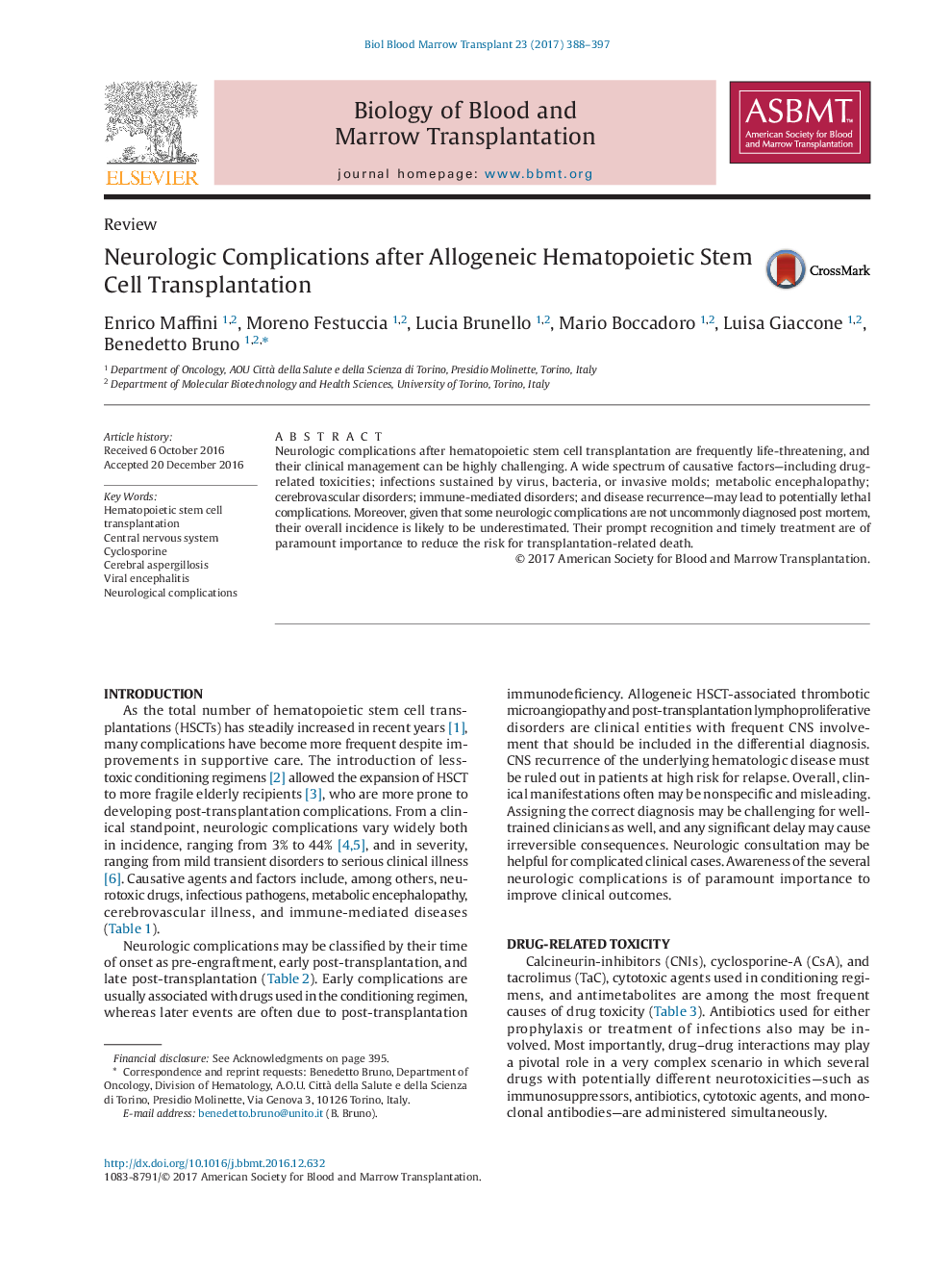| کد مقاله | کد نشریه | سال انتشار | مقاله انگلیسی | نسخه تمام متن |
|---|---|---|---|---|
| 5524209 | 1546243 | 2017 | 10 صفحه PDF | دانلود رایگان |
- Neurologic complications in hematopoietic stem cell transplantation recipients vary in both incidence and clinical severity.
- Drug-related toxicities and metabolic alterations represent the most common neurologic complications.
- Infectious complications include bacterial, fungal, viral, and protozoan pathogens.
- Opportunistic infections and long-term drug toxicities due to chronic graft-versus-host disease prevention/treatment are the most common causes of late neurologic complications.
- Post-transplantation lymphoproliferative disorders, disease relapse, and allogeneic HSCT-associated thrombotic microangiopathy are clinical entities to consider in the differential diagnosis.
Neurologic complications after hematopoietic stem cell transplantation are frequently life-threatening, and their clinical management can be highly challenging. A wide spectrum of causative factors-including drug-related toxicities; infections sustained by virus, bacteria, or invasive molds; metabolic encephalopathy; cerebrovascular disorders; immune-mediated disorders; and disease recurrence-may lead to potentially lethal complications. Moreover, given that some neurologic complications are not uncommonly diagnosed post mortem, their overall incidence is likely to be underestimated. Their prompt recognition and timely treatment are of paramount importance to reduce the risk for transplantation-related death.
Journal: Biology of Blood and Marrow Transplantation - Volume 23, Issue 3, March 2017, Pages 388-397
